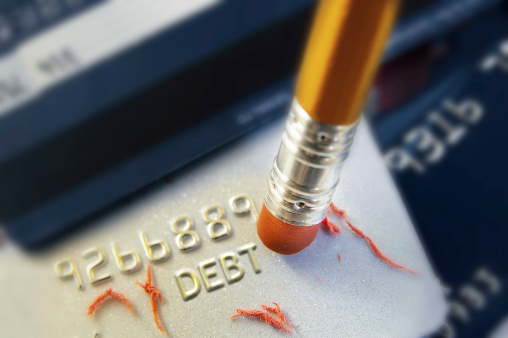
What Types of Debts Does Chapter 7 Discharge?
Chapter 7 bankruptcy is designed to help people eliminate overwhelming unsecured debts, ie debts that are not secured by collateral. This means that debts commonly discharged under Chapter 7 include: credit cards, personal loans, personal business debt, medical bills, utility bills, unpaid taxes over 3 years old, and fines from lawsuits or legal judgments.
What Are the Other Benefits of Chapter 7 Bankruptcy?
Filing for Chapter 7 bankruptcy has the additional benefit of stopping collection attempts from bill collectors. As soon as you hire an attorney for Chapter 7 and notify your bill collectors of this fact, they are required by law to send all collection notices to your attorney, not to you. You can also sometimes use Chapter 7 to stop wage garnishments. Many people are able to avoid foreclosure after Chapter 7, because a reduced debt load frees up cash to put towards their mortgage payments.
Can I Keep My Property?
Yes, you can keep certain kinds of property during Chapter 7. What you can keep depends on which of the two California exemption plans you qualify for and/or choose to use. Your attorney can explain the differences and limitations to you, but basically most people can keep all or some of the following assets during Chapter 7: primary residence, vehicles, home furnishings, Social Security or Disability benefits, and retirement savings accounts.
If you owe money on your home or vehicle, you must commit to paying off these debts in order to keep the property.
Who Can File Chapter 7?
In order to file for Chapter 7 bankruptcy, you must pass the Means Test. This test is designed to prevent abuse of the bankruptcy process by individuals who have too much qualified disposable income and could pay off 25 percent of their unsecured debt. People who are exempt from the Means Test include people earning incomes below the state median, disabled veterans, and active duty military personnel.
What are the Credit Consequences for Chapter 7?
Filing for bankruptcy will impact your credit scores, so after Chapter 7, you will need to take steps to rebuild your credit. We recommend getting just one new credit card, using it for small purchases, and paying off the balance each month. After about 2 years, most people will have repaired their credit enough to qualify for a home or auto loan.

